-
Currency
-
NEW
- All New Products
- New Kitchen Knives
- New Kitchen Tools
- Latest Vintage
- New Outdoor & Utility
- New Pantry
-
What's in my Basket Series
- Dr. Harold McGee - Author
- Ryo Sakai -Kuma Sushi
- Ian McNemar - Woodworker, Instructor
- Anna Voloshyna - Author
- Jorge Martinex Lillard - Lolo´
- Chris Yang - Piglet & Co
- Griffin Wilson - @cabincorn
- Gabe Rudolph - Gestura Utensils
- Marc Schechter - Square Pie Guys
- Molly DeCoudreaux - Food Photographer
- Geoff Davis - Burdell Soul Food
- Jen and Wes - @crazythickasians
- Josh Donald - Bernal Cutlery
- Kelly Kozak - Bernal Cutlery
- Jessica Sullivan - Poppy SF
- Sylvan Mishima Brackett - Rintaro
- Michael Myers - Film Character
- Ali Hooke - @alihooke
- Bruce Hill - The Chef's Press
- Dylan Carasco - Butcher's Guide
- Spencer Horowitz - Hadeem
-
Japanese Knives
- Ashi Hamono
- Gihei Knives
- Godo Tadaharu
- Hado
- Hatsukokoro
- Hitohira
- Jiro Nakagawa
- Iwasaki Kamisori
- Kaji-Bei
- Kamo Shiro
- Kanehide
- Konosuke
- MAC Knife
- Masakane
- Makoto Tadokoro Marushin
- Mizuno Axes
- Morihei
- Myojin Riki Sesakusho
- Nakagawa Hamono
- Naozumi
- Nigara Hamono
- Sakai Kikumori
- Shigefusa
- Tagai
- Takada no Hamono
- Tanabe Tatara
- Yoshikazu Tanaka
- Tosa
- Tsukasa Hinoura
- Yoshikane
- Wakui
-
Global Knives
- A Wright & Son (GBR)
- Allday Goods (GBR)
- Blenheim Forge (GBR)
- Geo Wostenholm IXL (GBR)
- Ibberson (GBR)
- J Adams (GBR)
- John Nowill & Son (GBR)
- Joseph Rogers (GBR)
- Wood Tools (GBR)
- André Verdier (FRA)
- Au Sabot (FRA)
- Chazeau Honoré (FRA)
- Fontenille Pataud (FRA)
- K Sabatier (FRA)
- David Margrita (FRA)
- Opinel (FRA)
- Eichenlaub Tableware (DEU)
- Friedr Herder (DEU)
- Windmühlenmesser (DEU)
- Florentine Kitchen Knives (ESP)
- Pallares (ESP)
- Helle (NOR)
- Andersson & Copra (SWE)
- Hults Bruks Axes (SWE)
- Kalthoff Axes (SWE)
- Morakniv (SWE)
- Iisakki Jarvenpaa (FIN)
- Zirh (TUR)
- Alma Knife Co. (USA)
- Astral Works (USA)
- Bernal Cutlery (USA)
- Benchmade Knives (USA)
- Dexter Russell (USA)
- Rolin Knives (USA)
- Silverthorn (USA)
- Steelport Knife Co. (USA)
- Tactile Knife Company (USA)
-
Styles
- Bernal Cutlery Collaborations
- Knife Sets
- Carving Sets
- Japanese Kitchen Knives
- Western Kitchen Knives
- Chinese Style Cleavers
- Bread
- Butchery
- Cheese | Charcuterie
- Young Chefs
- Woodworking | Hobby | Craft
- Kamisori Razors
- Table | Steak
- Pocket & Folding
- Fixed Blade, Axes & Outdoor Tools
- Scissors | Shears | Snips
- Left Handed
- The Vault
- Vintage
- Sayas | Guards
- Sharpening
- Kitchen | Cookware
- Tableware | Service
- Pantry
- Accessories
- Deals
- Gift Cards
- INFO
or
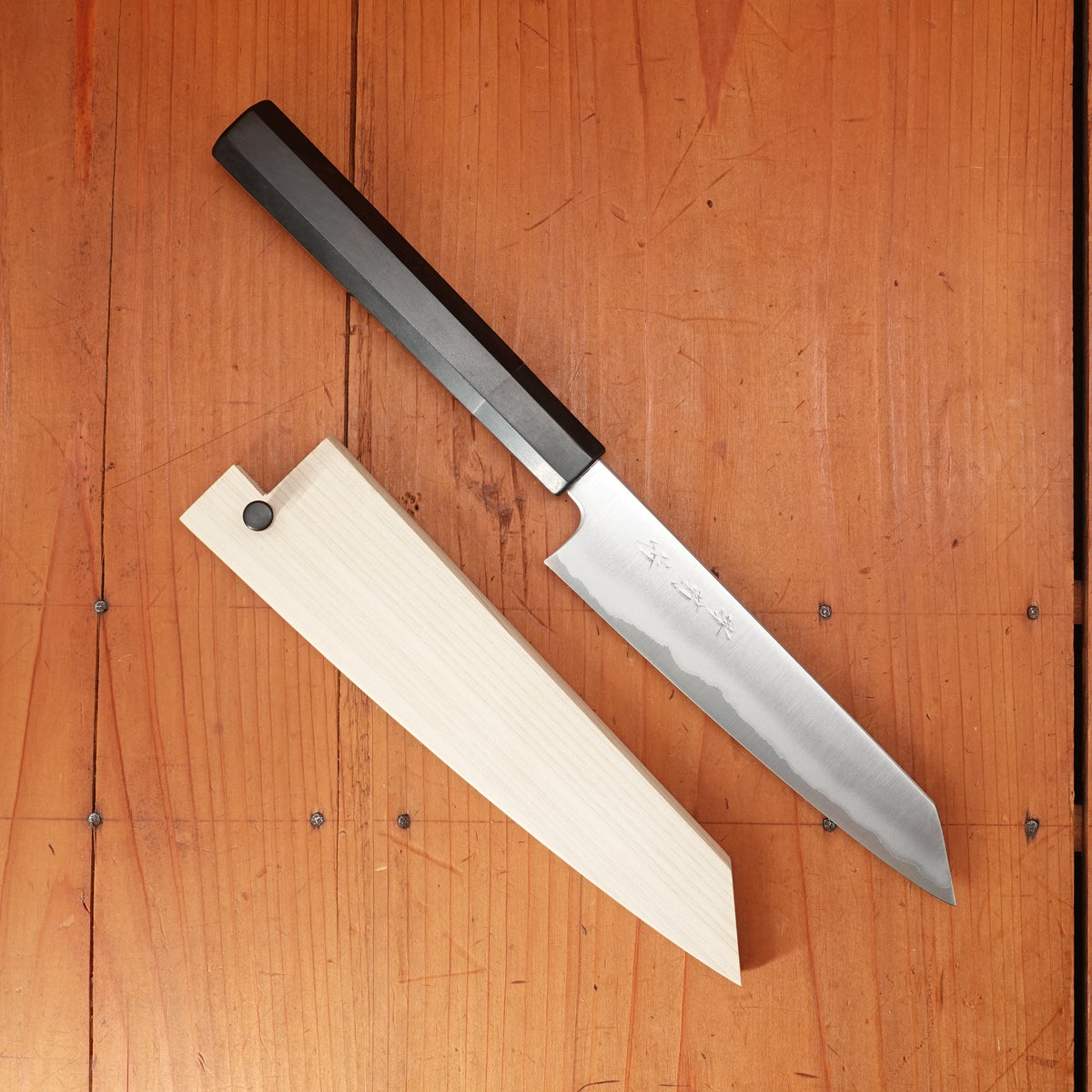
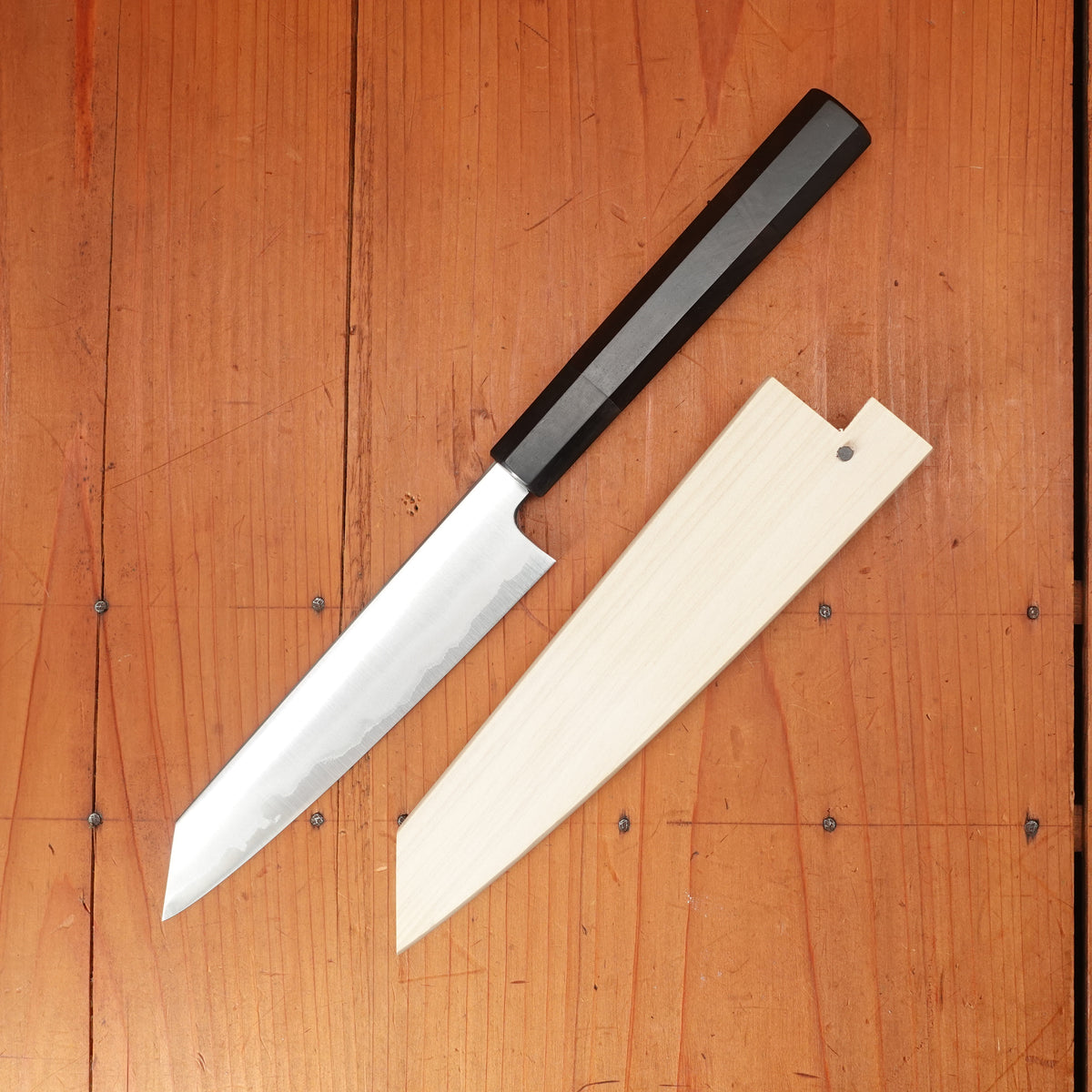
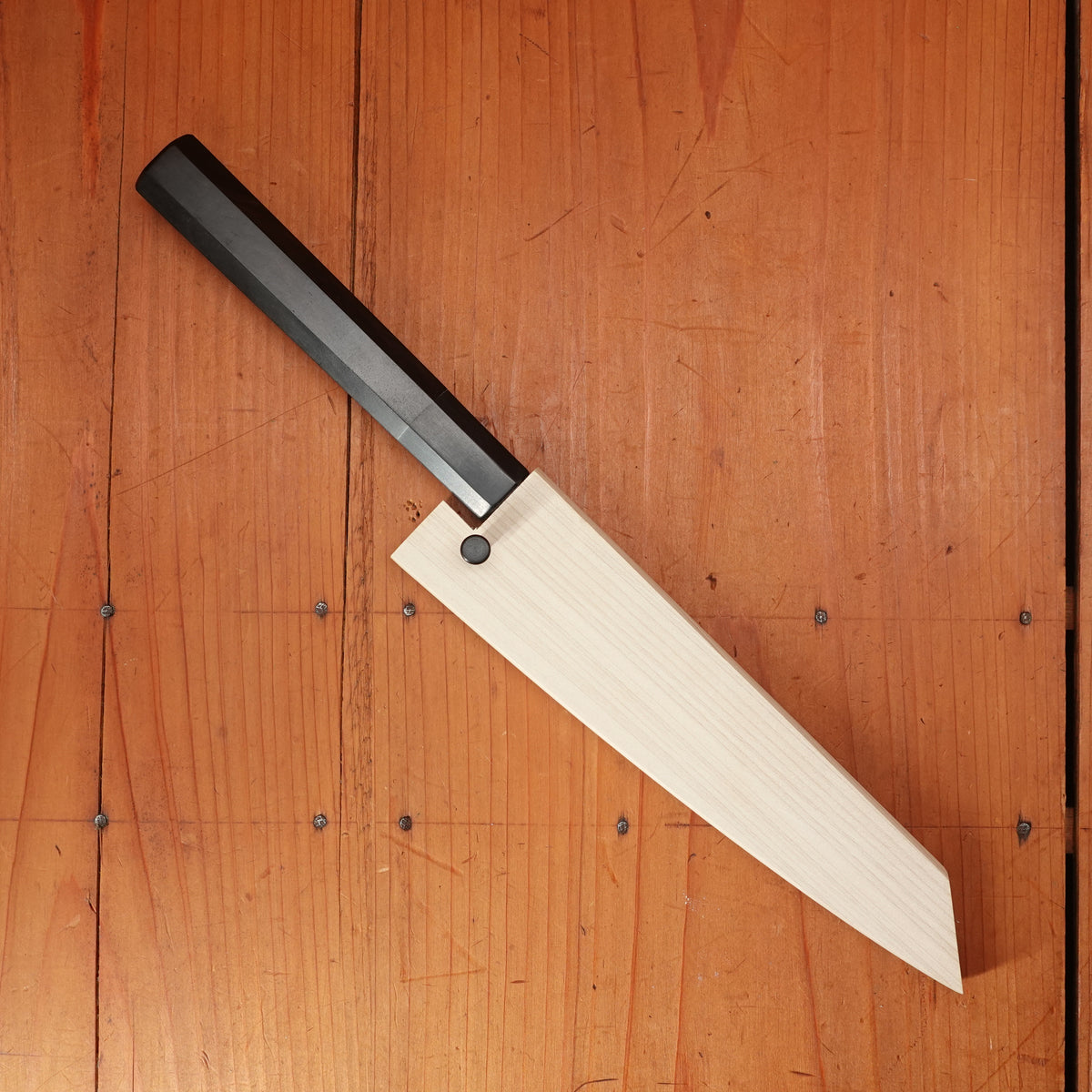
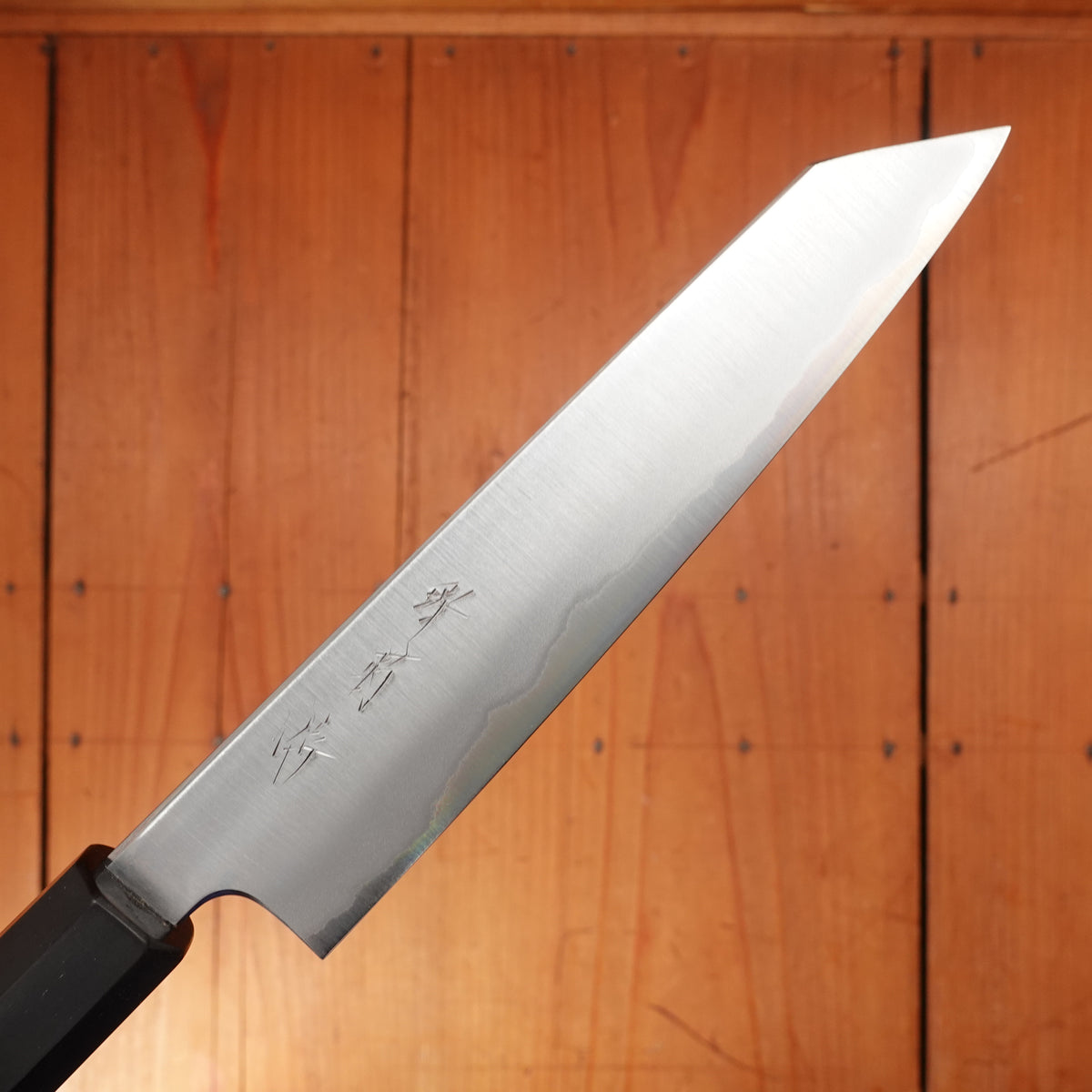
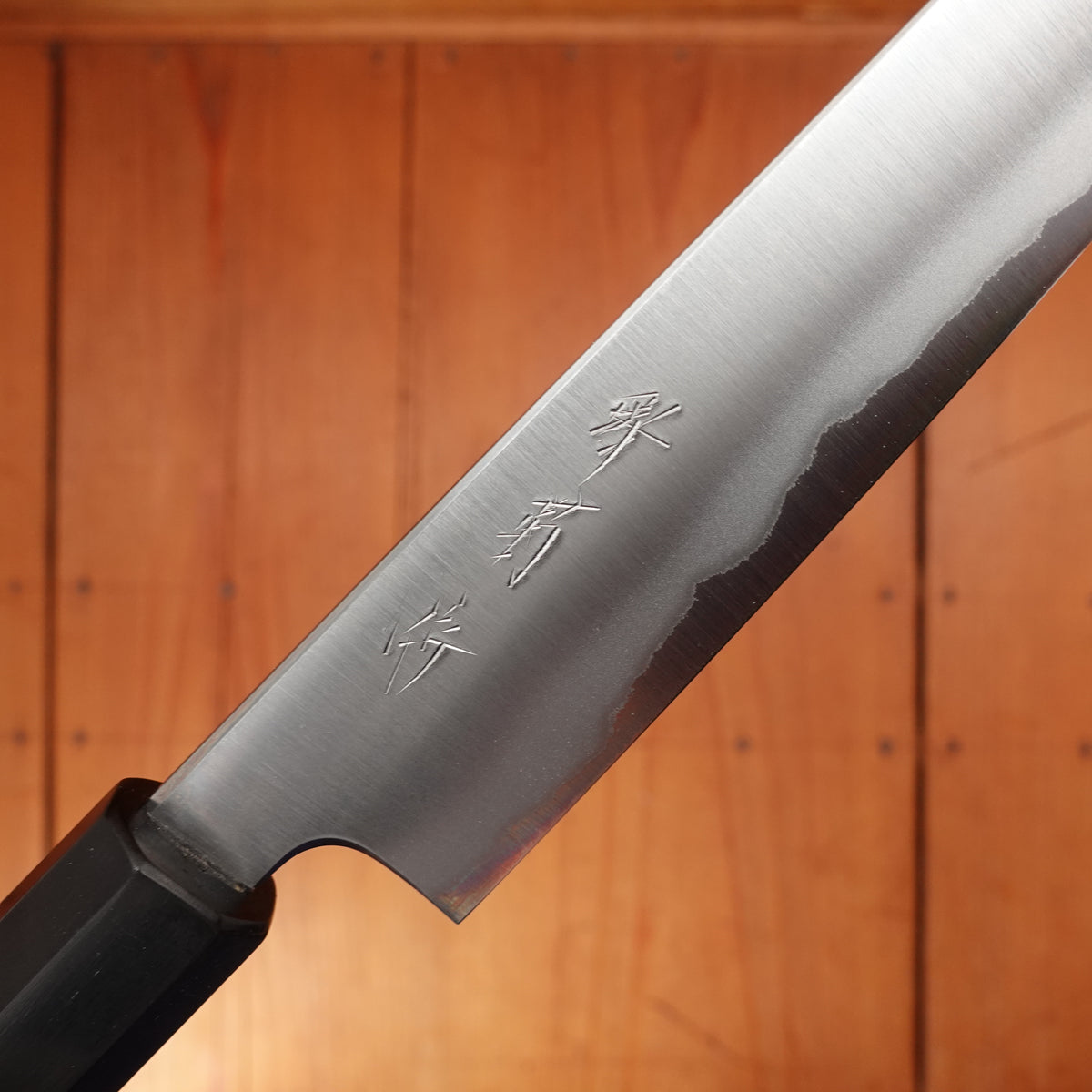
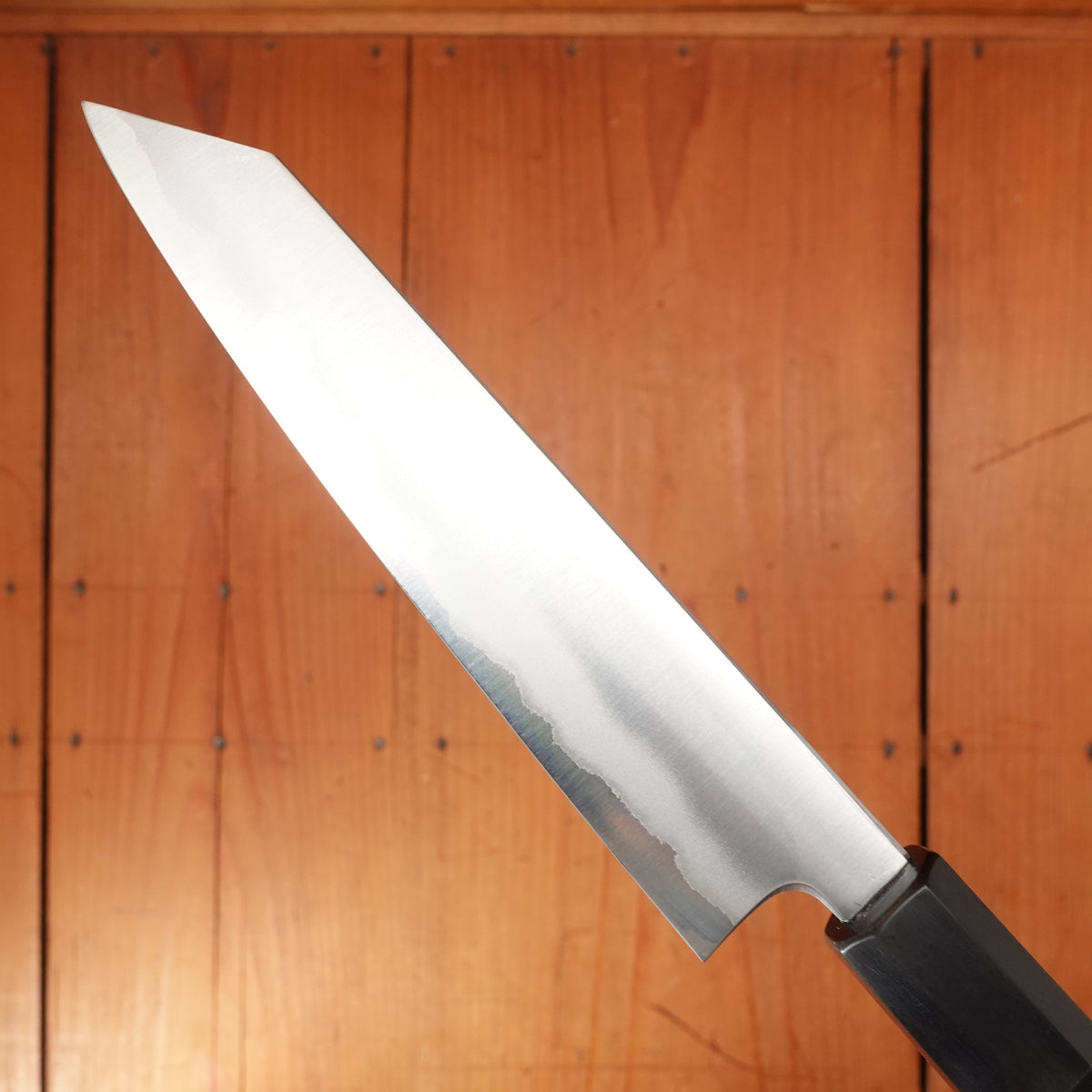
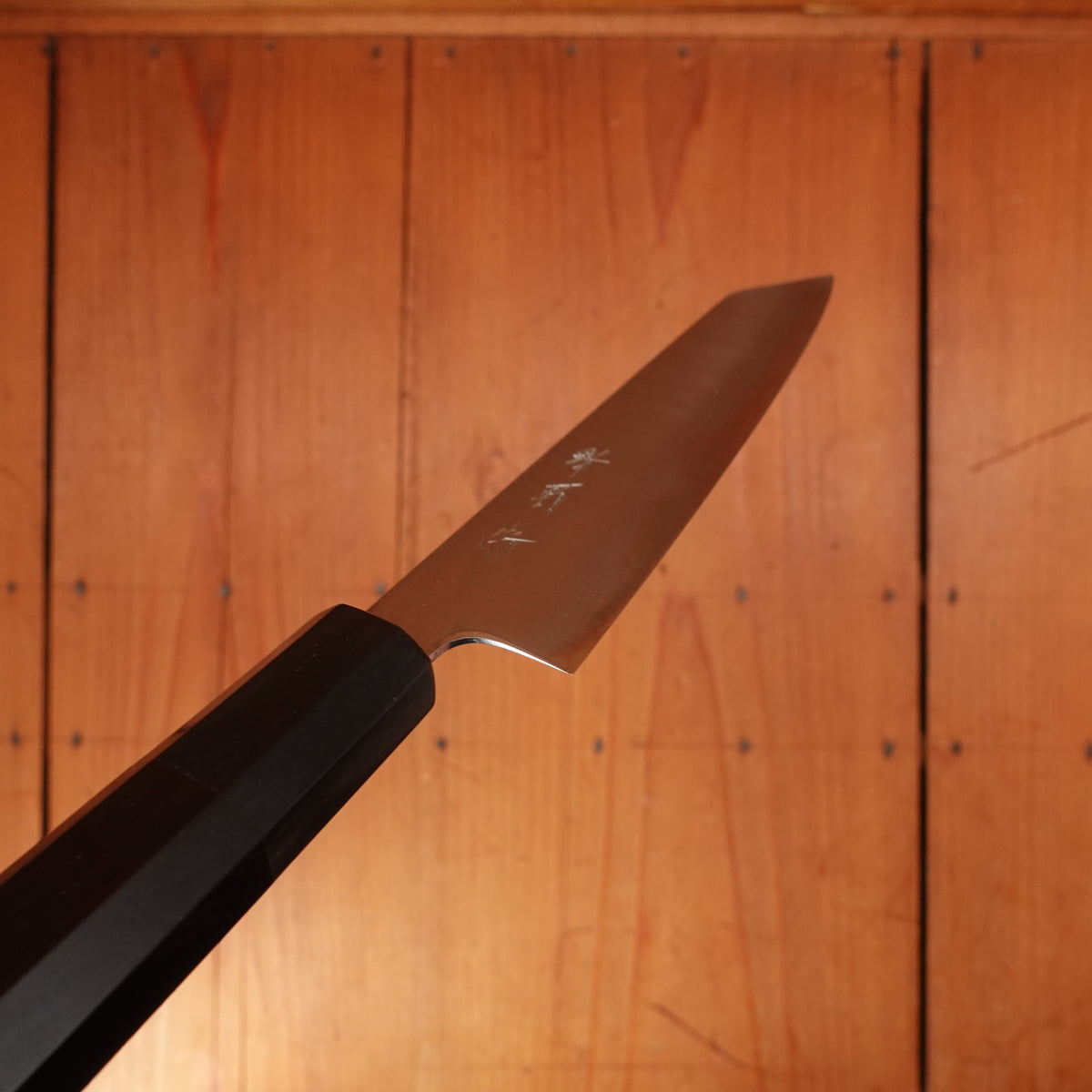
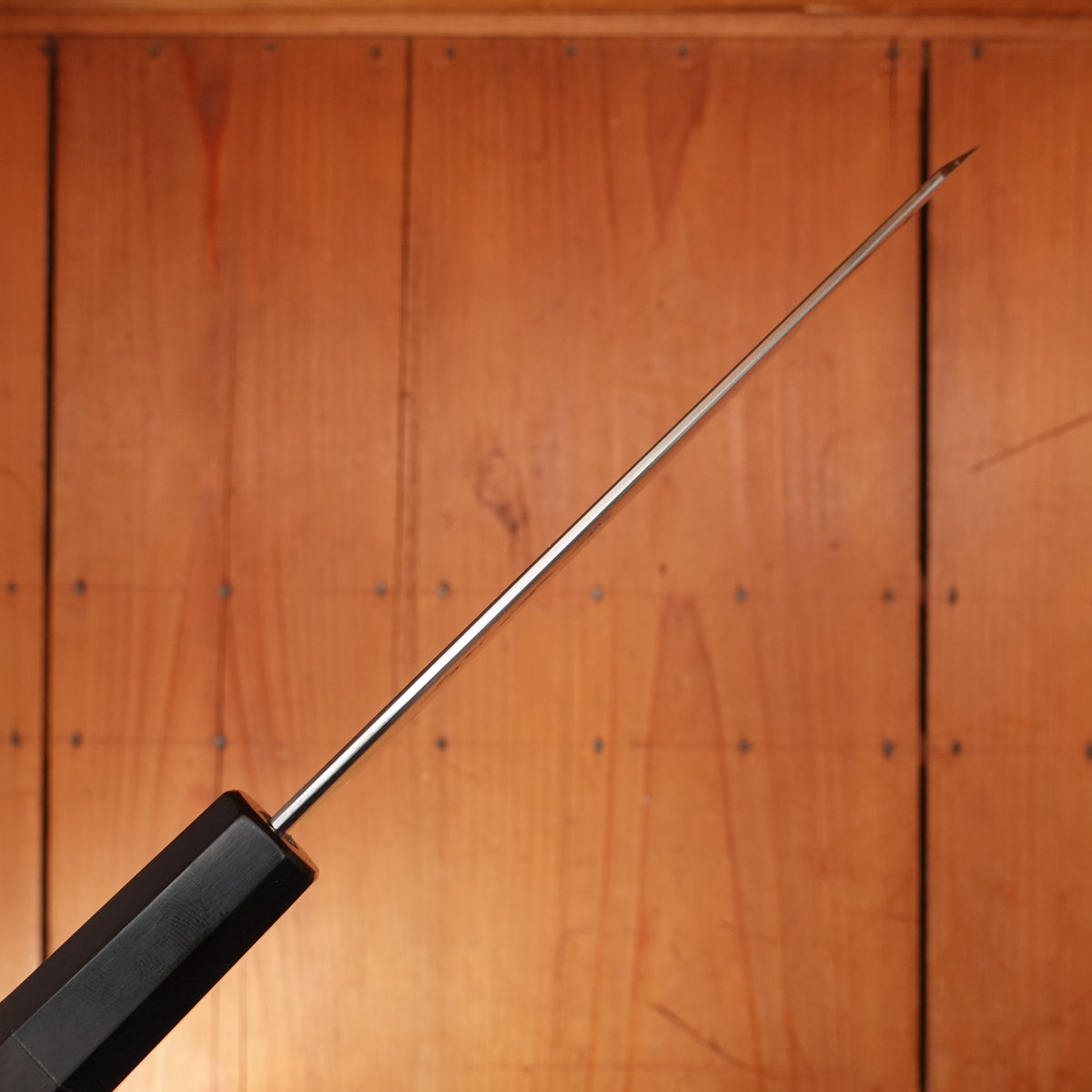
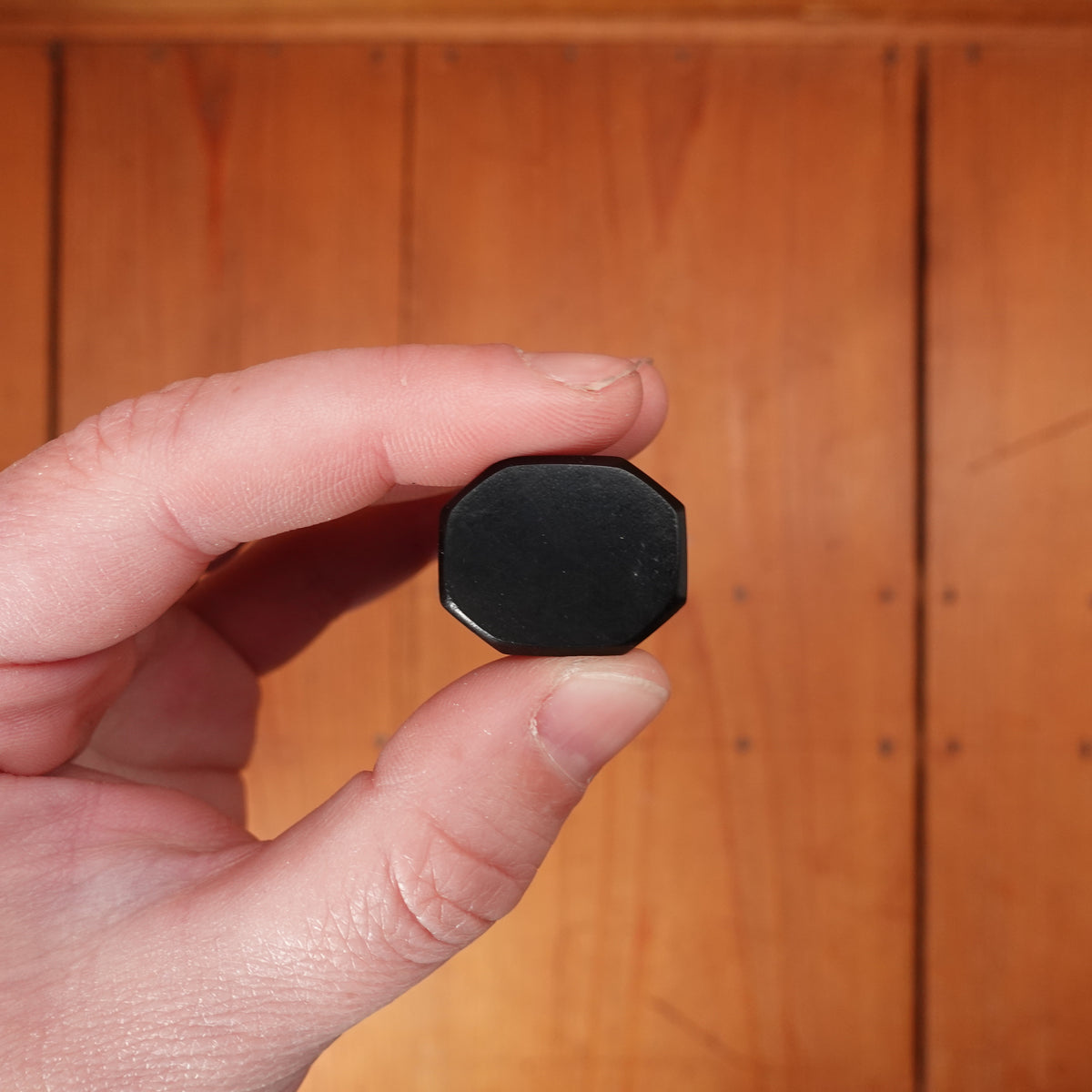
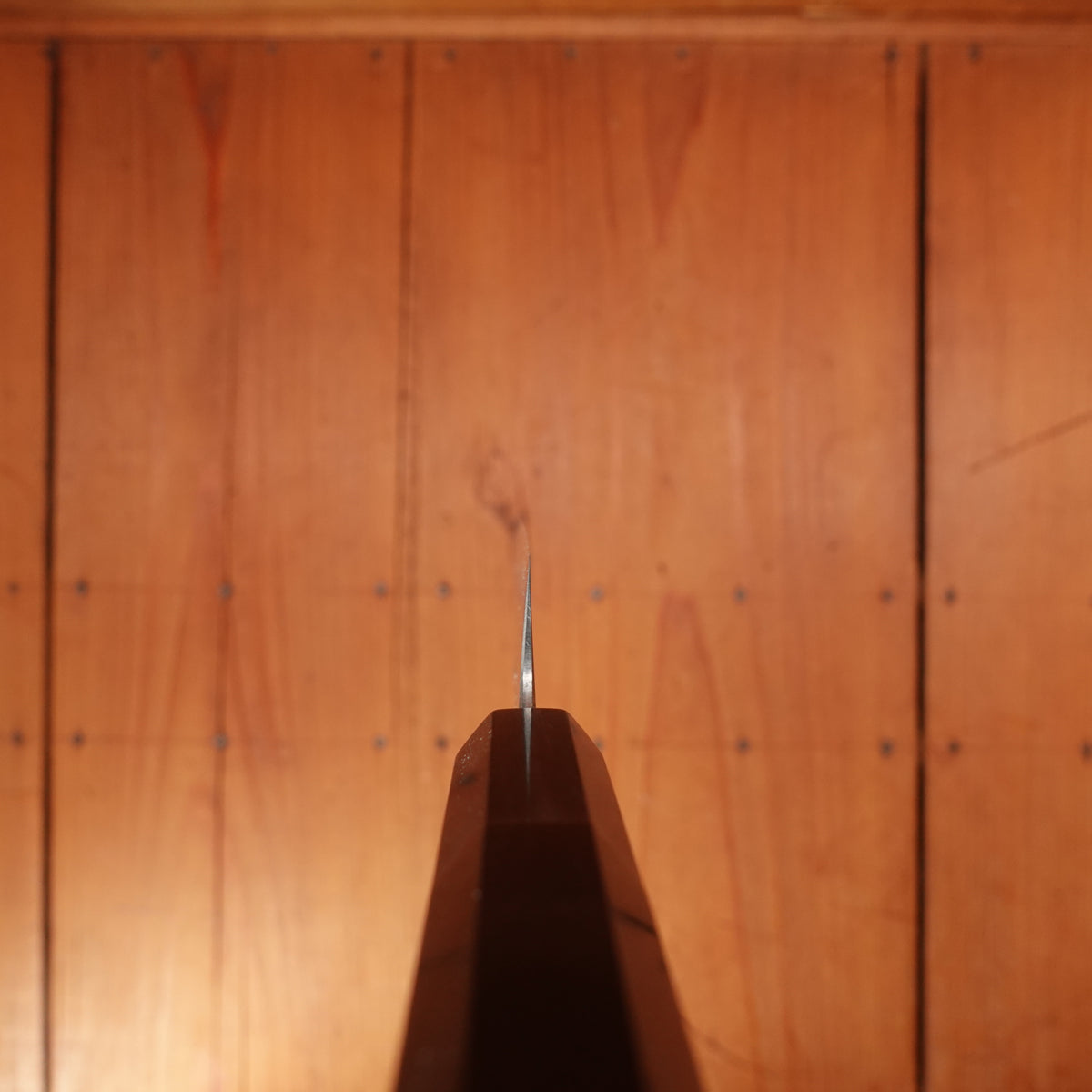
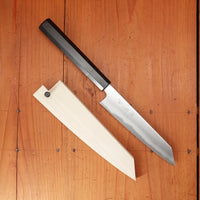
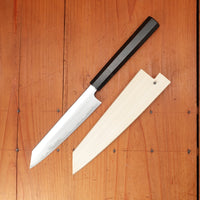
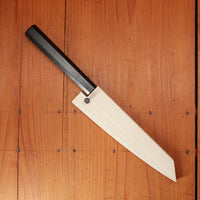
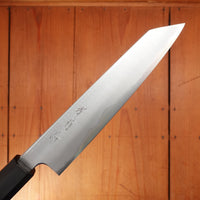
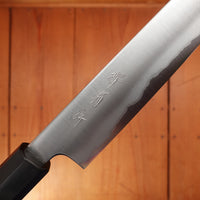
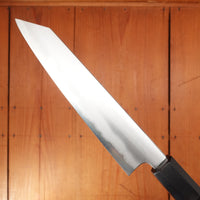
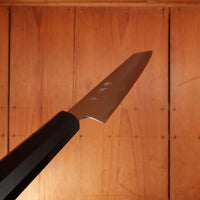
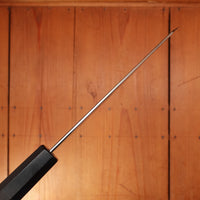
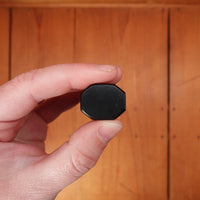
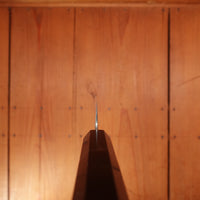
Sakai Kikumori Yugiri 150mm Kiritsuke Petty Stainless Clad Aogami 1 Ebony with Saya
-
Regular Price
-
£305.29
-
Sale Price
-
£305.29
-
Regular Price
-
Sale
Sold Out
-
Unit Price
- /per
- Regular Price
- £305.29
- Sale Price
- £305.29
- Regular Price
- Unit Price
- /per
Sakai Kikumori 150mm Kiritsuke Petty knife. Aogami 1 carbon steel core with stainless cladding. Ebony octagon handle with buffalo horn ferrule.
Yugiri blacksmiths are from Tanaka Hamono. Tanaka-san’s top level forging and heat treatments make for an unusual ease of sharpening and superb edge life and toughness.
The aogami core is not stainless (for a non-stainless steel it does rust slowly), so keep dry when not in use to avoid rust.
Sakai Kikumori was started in 1926 and draws on Sakai's 600 year history as the major center of traditional Japanese cutlery manufacturing. They work with a large variety of Sakai's best smiths, sharpeners and small factories to offer a wide variety of knives ranging from traditional materials and styles to more modern, western influenced styles and materials.
Steel Type: Aogami 1 Stainless Clad
Handle Material: Ebony
Weight: 92.4 g
Height at Heel: 31 mm
Overall Length: 277 mm
Cutting Edge Length: 143 mm
HRC: 63-64
This is a stainless clad carbon steel knife. The exposed carbon steel edge will take on a dark patina with use and can rust with prolonged exposure to moisture and debris up to the clad line. The stainless steel portion should resist oxidation and corrosion but can stain with habitual prolonged exposure to moisture. Hand wash and towel dry. Do not put it in the dishwasher. Do not air dry.
Twisting, scraping and heavy use as well as use on hard and very dense objects can lead to edge damage. Using a quality wooden cutting board will keep a sharper edge for longer. Cutting surface materials like glass, ceramic and bamboo will make the edge go dull quickly and should be avoided.
We recommend hand sharpening on whetstones. We have found that most Japanese knives perform best at a finer finish starting around 4000 grit. Avoid pull through sharpeners and non-water cooled mechanized sharpening. Ceramic honing rods are preferred.
Recently Viewed
About Bernal Cutlery
We are a full-service cutlery shop offering sharpening services, Japanese and Western culinary knives, vintage knives, outdoor, pocket and craft knives, cooking tools and accessories. We also offer knife skills and sharpening classes, and more.
We are proud to serve kitchen professionals, knife enthusiasts and home cooks alike. Located in the Mission District of San Francisco, California.
